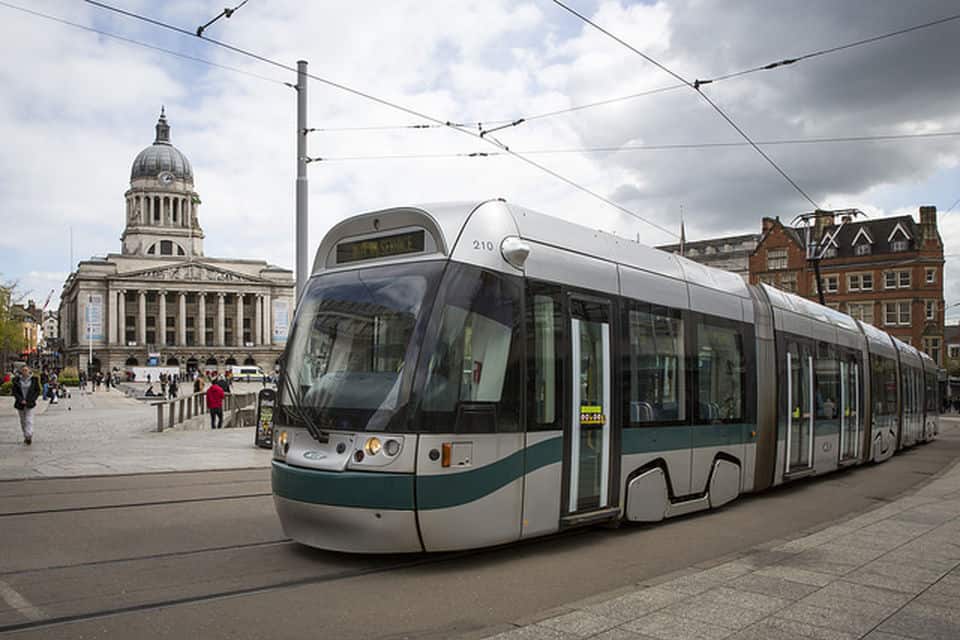By Harriet Lamb, Ashden CEO
How often do your colleagues arrive at the office tired and flustered thanks to a nightmare commute? Workers around the country are reaching their desks in a foul mood, miserable before they’ve even powered up their computers.
With just a few days to go until London Climate Action Week, we should remember that clogged roads aren’t just creating stressful delays. They’re increasing air pollution that triggers serious illness and kills up to 36,000 people a year. Toxic fumes are also speeding up global warming, with scientists warning that we have just 10 years to tackle the climate emergency, maybe less. It’s a gloomy situation – but solutions are at hand.
Sustainable energy innovators are creating happier journeys while cleaning up our air. So how could their smart thinking transform our commutes – and help employers create a healthier, happier workforce?
Electric vehicles are here to stay
Millions of us love the freedom of four wheels, with two-thirds of the UK’s commuting journeys made by car. But all too often the driver is alone in splendid isolation, particularly if they are going to and from work.
One answer filling the headlines is electric cars. New models are constantly hitting the market, with sales boosted by improving technology, falling costs and a greater public awareness of climate change. Last year energy giant BP bought Chargemaster, creator of the UK’s largest public charging network. At the time, BP predicted the number of electric vehicles in the UK would grow from the current total of 135,000 to 12 million by 2040. Of course, we won’t hit top speed as a nation of truly green commuters until companies like BP ditch fossil fuels – but their move into electric charging at least shows how quickly green innovation can go mainstream.
Lift sharing and green deliveries.
Elsewhere, people are joining forces to cut carbon emissions through lift sharing. Companies such as Liftshare offer an app that helps people set up shared journeys, and also work directly with employers to set up workplace lift sharing schemes. In 20 years they’ve saved 800 million car miles working with organisations such as Boots, Bupa, Jaguar Land Rover and the NHS. That’s equivalent to 1,674 return trips to the moon.

Of course, our roads aren’t just clogged because of the work commute. Another reason is our online shopping obsession – which has unleashed a flood of vehicles chauffeuring our groceries, takeaways, fast-fashion bargains and Amazon packages.
But convenience doesn’t have to trigger sky-high carbon emissions. Logistics company Zedify is using pedal-powered cargo bikes and trikes, as well as electric vans, to deliver parcels in cities up and down the UK. So next time you order a hat, hoodie or pair of headphones, it could arrive guilt-free on two or three wheels. They work with businesses of all sizes from – independent shops to e-commerce giants. Partnering with them is a great way to boost your organisation’s green credentials.
Of course, there’s still a carbon cost to manufacturing electric vehicles – and until the UK electricity grid only uses renewable energy, charging them still relies on polluting fossil fuels. So, can we get even greener?
Better places to walk and cycle
More public transport, as well as new tax measures and incentives, will help. For example, Nottingham City Council has introduced a workplace parking levy raising money to invest in new tram routes, electric buses, cycling and public transport smartcards. More people are using public transport and congestion has been constrained, even as Nottingham’s economy has grown.But ultimately, we need to make greener transport more attractive. People will only be tempted out of their cars if we create liveable cities, towns and villages.
With this in mind, the London Borough of Waltham Forest has taken bold steps to shift the way people travel. Its multi-million pound ‘Enjoy Waltham Forest’ project has made the borough a nicer place to make journeys by bike or on foot. The authority has redesigned road networks and crossings, built hundreds of bike hangars and storage areas, and planted 700 trees.
Travelling bike or by foot will never be the answer for everyone – but it could be a huge part of the fight against climate change, particularly in our most crowded and polluted cities. As a London cyclist, I know how much staying active boosts my physical and mental health – in fact, it’s the polar opposite of a stressful hour stuck behind the wheel.
Employers must get ahead of the game
In March 2019, a Government survey found a record 80% of the British public were very or fairly concerned about climate change. The behaviour that most people thought would have the biggest impact on tackling climate change (if everyone does it) was choosing to walk, cycle or use public transport more instead of using a car.

Employers need to recognise that public awareness of air pollution is growing every day, as are demands for climate action. More and more staff will expect their company to see the dangers and respond. So how can employers avoid being left behind? One great way is to partner with sustainable travel innovators such as Liftshare or Zedify – or ask your local authority to follow the lead of Waltham Forest or Nottingham. Our free toolkit, launched just a week ago, makes it even easier for councils and others to lead climate action and promote sustainable lifestyles.
Employers can also help staff make the personal changes that protect their health and planet. How about bike vouchers or loans (and facilities to change and shower), or travelcard loans? The global switch to sustainable energy will only work if everyone gets their say, so ask your teams what changes they would like to see. Their feedback will create a much better working environment for all of us.
This piece first appeared on the Harris Hill blog.

